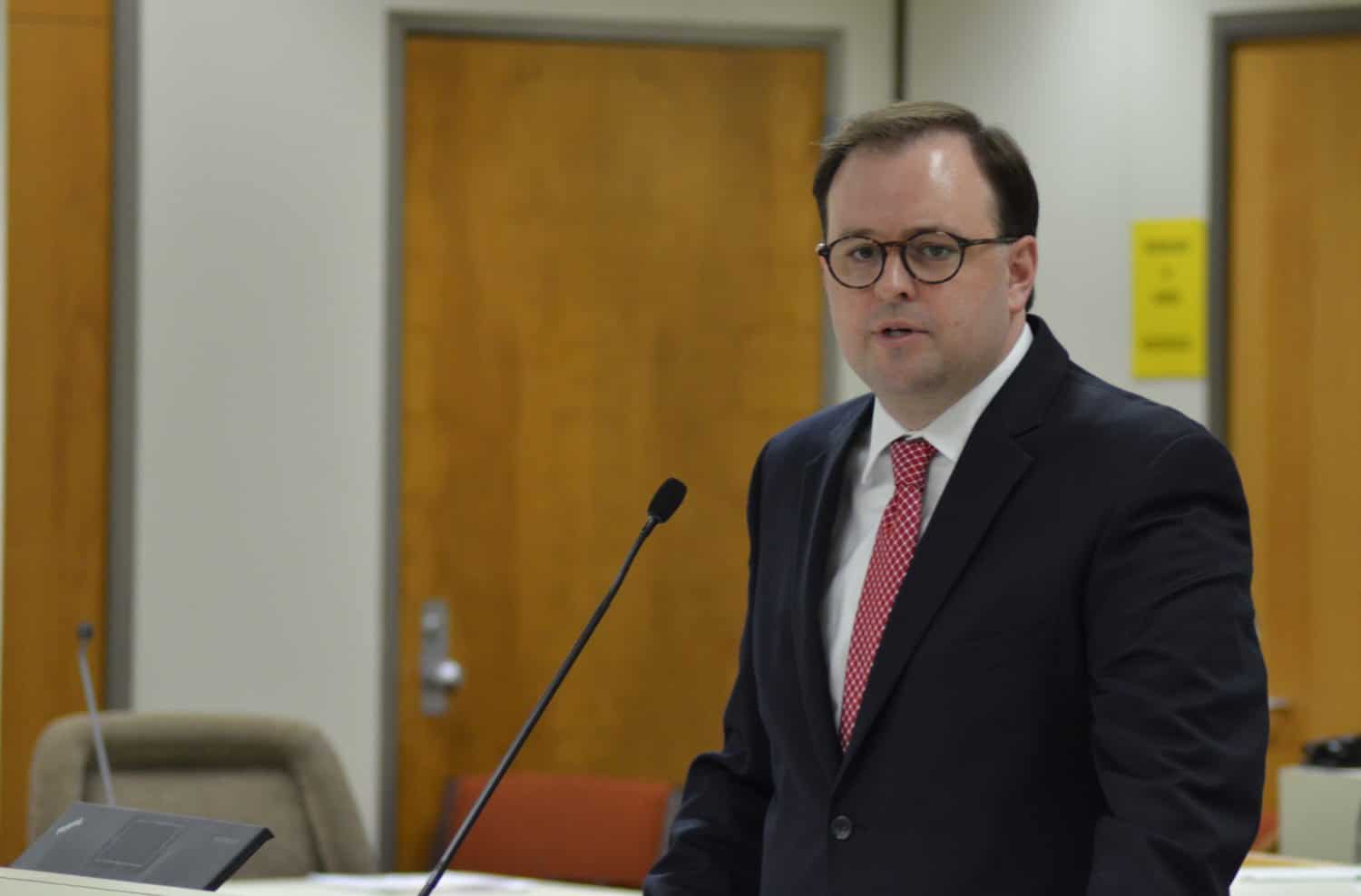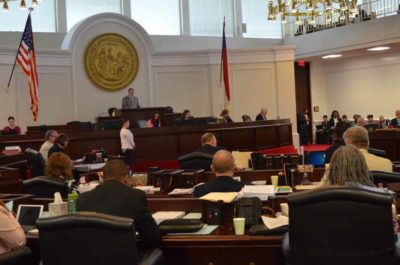The Senate education committee met Wednesday and gave a favorable vote to Senate Bill 599 which expands the number of options for individuals to become teachers.
This was the third time the bill came before the committee, and it got a positive vote with little discussion Wednesday, following a lengthy debate Tuesday.
“After all the questions, the members are exhausted,” said Sen. Jeff Tarte, R-Mecklenburg, right before making a motion to give the bill favorable approval.
The legislation opens up more options for people interested in becoming teachers by allowing organizations outside of colleges or universities to offer educator preparation programs.
It establishes the Professional Educator Preparation and Standards Commission, a governing body made up of teachers and administrators from all levels of the educational system that would make recommendations regarding educator preparation programs to the State Board of Education. The State Board would have the final say on what standards the programs would have to meet and whether or not they meet those standards.
The legislation would also change the process for those in other professions who are interested in teaching. Under the bill, the process typically called “lateral entry” would be changed to “residency licensure.”
Residency licensure would require participants to have some training after being hired by a local school district and before actually teaching in the classroom. After the participant completes those requirements, he or she could begin teaching and begin any educator preparation program.
Under current law, if an individual has a bachelor’s degree and switches to teaching, he or she can be hired and start teaching before they complete coursework and training.
Sen. Chad Barefoot, R-Wake, the primary bill sponsor and one of the chairs of the committee, addressed points Wednesday raised by a few amendments brought forth on Tuesday.
An amendment by Sen. Joyce Waddell, D-Mecklenburg, would have given teachers with 40 years of experience, a “lifetime license” that never has to be renewed. That amendment failed, but the bill does give teachers with 50 years or more experience a lifetime license.
Barefoot said that the State Department of Public Instruction reported to the committee the exact number of teachers with those respective years of experience. Currently there are 17 teachers in the state with 50 or more years of experience and 1,437 with 40 or more.
“I did want to point that fact out,” he said. “I think your vote on the amendment yesterday was very wise.”
Sen. Erica Smith-Ingram, D-Northampton, said she would be interested in working further on that aspect of the bill, noting that there are about 189 teachers in the state that have 45 years or more experience.
Barefoot also brought up an amendment that Smith-Ingram tried unsuccessfully to pass Tuesday which would have lowered the GPA requirement for applicants of educator preparation programs.
“She had the right point, the wrong amendment,” Barefoot said.
In trying to pass her amendment to lower the GPA requirement, Smith-Ingram had brought up the example of someone who was trying to become a teacher through lateral entry. Since these people often try to enter teaching after being in a different profession, they may have majored in something exceptionally hard as an undergraduate and not performed up to the 2.7 GPA standard currently in law. But that should not disqualify them from becoming teachers, she said Tuesday.
Barefoot said that he would have crafted an amendment to address the problem before Wednesday’s meeting, but he didn’t have time. He asked Smith-Ingram to continue to work with committee members on that aspect of the bill.
“I promise you we will get it fixed before the bill hits the floor,” he said.
The bill has to go through the Senate finance and rules committees before making it to the Senate floor, Barefoot said.



